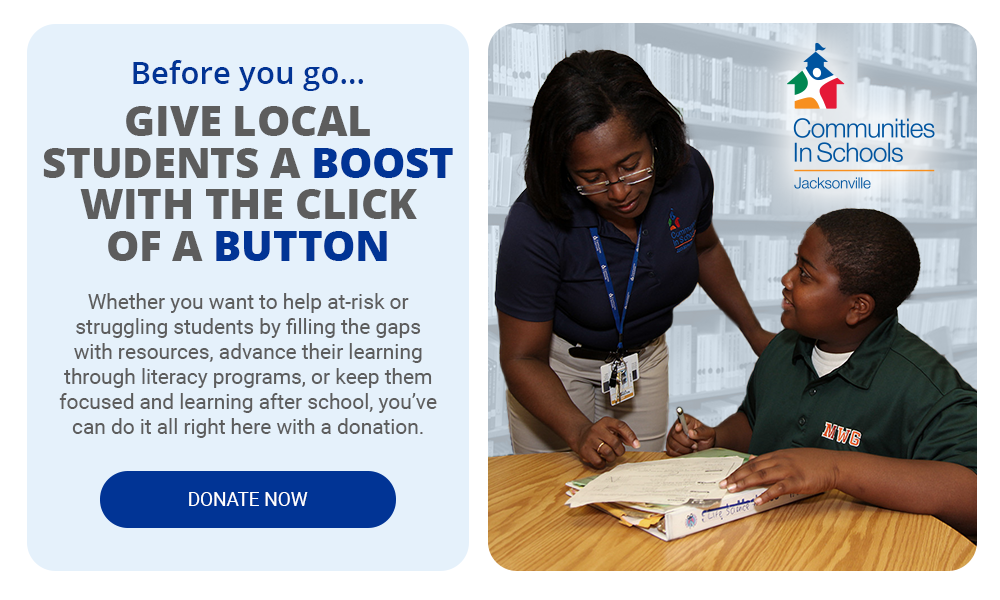In today’s fast-paced and complex world, children face numerous challenges in their academic and personal lives. As a caring and responsible society, we must provide them with the support and guidance they need to overcome obstacles and achieve their full potential. That’s where mentoring programs come in. In this blog post, we will explore the profound impact of mentoring programs, particularly in the context of literacy programs, on children’s success. At CIS Jax, we are dedicated to building a brighter future for children through our mentoring programs that focus on academic enrichment and personal growth.
1. The Power of Mentoring Programs
Mentoring programs provide a powerful and nurturing relationship between a mentor and a mentee. These programs aim to inspire, guide, and support children in their educational and personal journeys. By connecting children with caring mentors, mentoring programs offer a safe space for children to develop essential life skills, gain confidence, and improve their academic performance. With the guidance of a mentor, children can navigate challenges, set goals, and envision a brighter future.
Mentoring programs create a positive impact on children’s lives by offering role models who can provide guidance and support outside of their immediate family. Mentors serve as advocates, providing a listening ear, encouragement, and advice. The mentor-mentee relationship allows children to form a trusting bond, which can boost their self-esteem, develop their communication skills, and foster personal growth.
2. Empowering Literacy Programs through Mentoring
Literacy is the foundation of a child’s educational journey and overall success. Mentoring programs, when integrated with literacy programs, can have a profound impact on children’s literacy skills and their love for reading. Mentors can provide one-on-one support, assist with reading comprehension, and engage children in meaningful conversations about books. By fostering a love for reading, mentoring programs contribute to improved literacy rates, enhanced communication skills, and increased academic achievement.
The mentor’s role in literacy programs goes beyond academic support. Mentors can help children explore various genres, recommend books based on their interests, and ignite a passion for reading. Through discussions and shared reading experiences, mentors can improve children’s comprehension, expand their vocabulary, and encourage critical thinking. By incorporating literacy programs into mentoring programs, children develop a lifelong love for learning and reap the benefits of improved literacy skills.
3. Personalized Support for Academic Growth
Every child has unique strengths, challenges, and learning styles. One of the key advantages of mentoring programs is the personalized support they offer. Mentors can tailor their guidance and instruction to meet the individual needs of each mentee. They can provide additional assistance in areas where children may struggle, offer academic resources and strategies, and help children develop effective study habits. This personalized support enhances children’s academic growth and helps them reach their full potential.
Mentors can identify the specific areas where children need additional support and provide targeted interventions. Whether it’s improving math skills, enhancing writing abilities, or developing critical thinking, mentors can design activities and lessons that align with the mentee’s learning goals. This individualized approach allows children to work at their own pace, build confidence, and overcome academic challenges.
4. Building Confidence and Self-Esteem
Mentoring programs have a significant impact on a child’s confidence and self-esteem. Through regular interactions and positive reinforcement, mentors empower children to believe in themselves and their abilities. Mentors serve as role models, offering encouragement, guidance, and a listening ear. As children experience small successes and overcome challenges with their mentor’s support, their confidence grows, leading to increased self-esteem and a belief in their potential.
The mentor-mentee relationship provides a safe space for children to express their thoughts and emotions without fear of judgment. Mentors can offer constructive feedback, celebrate achievements, and help children set realistic goals. By nurturing a positive self-image and fostering resilience, mentors enable children to face challenges with a growth mindset and develop a sense of self-worth that extends beyond academics.
5. Nurturing Social-Emotional Development
Children’s social-emotional development is a critical aspect of their overall well-being. Mentoring programs provide a nurturing environment for children to develop important social and emotional skills. Mentors offer a supportive and non-judgmental space for children to express their thoughts, emotions, and concerns. Through regular interactions, mentors can help children develop empathy, resilience, and effective communication skills. By nurturing social-emotional development, mentoring programs contribute to children’s personal growth, improved relationships with peers and adults, and increased overall happiness.
Mentors act as trusted confidants, providing guidance and support during challenging times. They can help children navigate conflicts, manage stress, and develop healthy coping mechanisms. Through engaging in meaningful conversations and activities, mentors teach children the value of empathy, respect, and effective communication. These social-emotional skills are essential for building positive relationships, resolving conflicts, and thriving in various social settings.
Conclusion
Mentoring programs, particularly when integrated with literacy programs, have a profound impact on children’s success. Through the guidance and support of mentors, children gain academic skills, develop confidence and self-esteem, and nurture their social-emotional well-being. At CIS Jax, we are committed to building a brighter future for children through our mentoring programs. Join us in making a difference in children’s lives and empowering them to reach their full potential. Together, we can shape a brighter future for the next generation.



